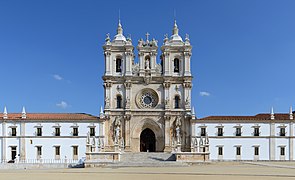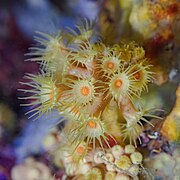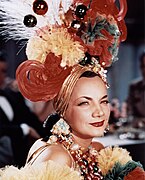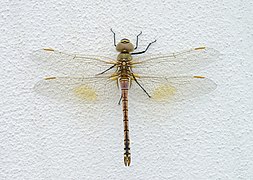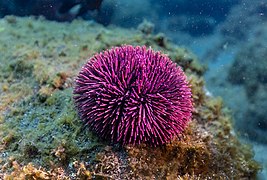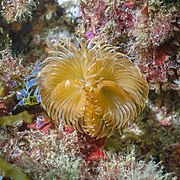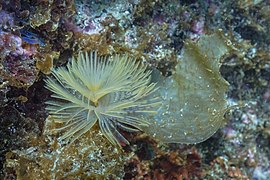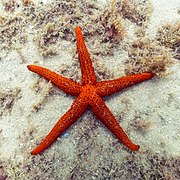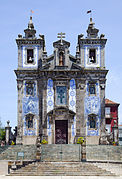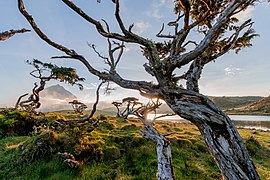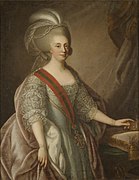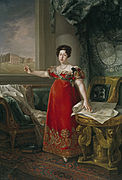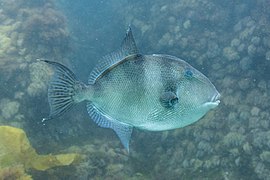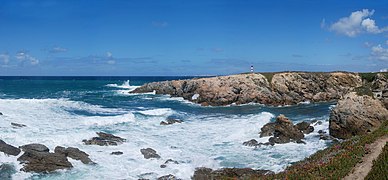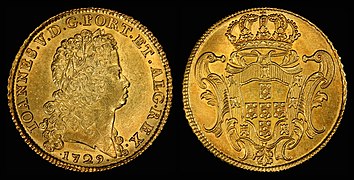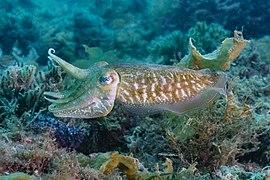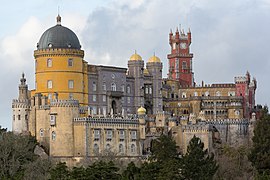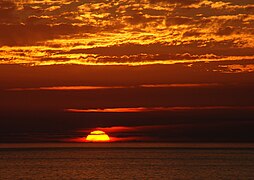Portal:Portugal
Welcome to the Portugal portal  Portugal, officially the Portuguese Republic, is a country located on the Iberian Peninsula in Southwestern Europe, whose territory also includes the Macaronesian archipelagos of the Azores and Madeira. It features the westernmost point in continental Europe; its mainland west and south border with the North Atlantic Ocean; and in the north and east, the Portugal-Spain border, which constitutes the longest uninterrupted border line in the European Union. Its archipelagos form two autonomous regions with their own regional governments. On the mainland, the Alentejo region occupies the biggest area but is one of the least densely populated regions of Europe. Lisbon is the capital and largest city by population, and it is also the main spot for tourists alongside Porto, the Algarve, and Madeira. As one of the oldest countries in Europe, its territory has been continuously settled and fought over since prehistoric times. The territory was inhabited by the Celtic and Iberian peoples, such as the Lusitanians, the Gallaecians, the Celtici, the Turduli, and the Conii. These peoples had some commercial and cultural contact with the Phoenicians, ancient Greeks, and Carthaginians. It was later ruled by the Romans, followed by the invasions of Germanic peoples together with the Alans and later the Moors, who were eventually expelled during the Reconquista. First founded as a county within the Kingdom of León in 868, Portugal formally became an independent kingdom with the Treaty of Zamora in 1143. During the 15th and 16th centuries, Portugal led the Age of Discovery and established one of the longest-lived maritime and commercial empires, becoming one of the main economic and political powers of the time. By the early 19th century, events such as the 1755 Lisbon earthquake, the country's occupation during the Napoleonic Wars, and the resulting independence of Brazil in 1822 led to a marked decay of Portugal's prior opulence. This was followed by the civil war between liberal constitutionalists and conservative absolutists over royal succession from 1828 to 1834. The 1910 revolution deposed Portugal's monarchy and established the democratic but unstable Portuguese First Republic, later superseded by the authoritarian regimes of Ditadura Nacional (National Dictatorship) and Estado Novo (New State). Democracy was restored after the Carnation Revolution (1974), ending the Portuguese Colonial War and eventually losing its remaining colonial possessions. (Full article...) Selected article -Horta (Portuguese pronunciation: [ˈɔɾtɐ] ) is a municipality and city in the Portuguese archipelago of the Azores encompassing the island of Faial. The population in 2011 was 15,038 in an area of 173.06 square kilometres (66.82 sq mi) The city of Horta itself has a population of about 7,000. Horta's marina is a primary stop for yachts crossing the Atlantic Ocean, and its walls and walkways are covered with paintings created by visitors noting the names of their vessels, crews, and the years they visited. Peter's Cafe Sport is a bar located across from the marina that houses the island's scrimshaw museum, a collection of artifacts carved from whale tooth and jawbone. Peter's is a point of reference for transatlantic yachters and sailors. (Full article...)This is a Featured article, which represents some of the best content on English Wikipedia.
The Rhodesian mission in Lisbon (Portuguese: Missão da Rodésia em Lisboa), the capital of Portugal, operated from September 1965 to May 1975. It was a diplomatic mission representing Rhodesia (or Southern Rhodesia), initially as a self-governing colony of Britain and, after the Unilateral Declaration of Independence in November 1965, as an unrecognised state. Rhodesia informed Britain of its intent to open a Lisbon mission headed by an accredited representative, independent from the British Embassy in the city, in June 1965. Whitehall refused to endorse the idea but Rhodesia continued nonetheless, and later that month appointed Harry Reedman to head the mission. The British government attempted unsuccessfully to block this unilateral act—Rhodesia's first—for some months afterwards. The affair came amid the larger dispute between Whitehall and Salisbury regarding the terms under which Rhodesia could be granted sovereign independence. Rhodesia's mostly white government insisted that statehood should come under the constitution introduced with Britain's approval in 1961, while Whitehall insisted that a set timetable for the introduction of black majority rule would have to be in place before the country could be fully independent. The Rhodesian government's stance on this matter caused it to become isolated within the Commonwealth, which from 1964 excluded it from most of its internal bodies, while the Rhodesian military became unofficially embargoed by its established British and American suppliers. (Full article...)General imagesThe following are images from various Portugal-related articles on Wikipedia.
Selected quote -"Times change, wills change"
Mudam-se os tempos, mudam-se as vontades This is a Good article, an article that meets a core set of high editorial standards.
The Portuguese conquest of the Jaffna kingdom occurred after Portuguese traders arrived at the rival Kotte kingdom in the southwest of modern Sri Lanka in 1505. Many kings of Jaffna, such as Cankili I, initially confronted the Portuguese in their attempts at converting the locals to Roman Catholicism, but eventually made peace with them. By 1591, the king of Jaffna Ethirimanna Cinkam was installed by the Portuguese. Although he was nominally a client, he resisted missionary activities and helped the interior Kandyan kingdom in its quest to get military help from South India. Eventually, a usurper named Cankili II resisted Portuguese overlordship only to find himself ousted and hanged by Phillippe de Oliveira in 1619. The subsequent rule by the Portuguese saw the population convert to Roman Catholicism. The population also decreased due to excessive taxation, as most people fled the core areas of the former kingdom. (Full article...)Selected Biography -Ferdinand Magellan (c. 1480 – 27 April 1521) was a Portuguese explorer best known for having planned and led the 1519–22 Spanish expedition to the East Indies, which achieved the first circumnavigation of Earth in history. During the expedition, he also discovered the Strait of Magellan, allowing his fleet to pass from the Atlantic into the Pacific Ocean and perform the first European navigation to Asia via the Pacific. Magellan died in the Philippines during his voyage, and his crew completed the return trip to Spain in 1522. Born c. 1480 into a family of minor Portuguese nobility, Magellan became a skilled sailor and naval officer in service of the Portuguese Crown in Asia. King Manuel I refused to support Magellan's plan to reach the Moluccas, or Spice Islands, by sailing westwards around the American continent. Magellan then proposed the same plan to King Charles I of Spain, who approved it. In Seville, he married, fathered two children, and organized the expedition. In 1518, for his allegiance to the Hispanic monarchy, Magellan was appointed an admiral of the Spanish fleet and given command of the expedition—the five-ship "Armada of Molucca." He was also made a Commander of the Order of Santiago, one of the highest military ranks of the Spanish Empire. (Full article...)Selected picture - A view of the 25 de Abril Bridge in Lisbon
Did you know -
Portugal topicsPortugal lists
SubcategoriesRecognized content
Featured articles
Former featured articlesFeatured listsFormer featured listsGood articles
Former good articlesDid you know? articles
Featured pictures
Former featured portalsIn the News articles
Main page featured articles
Picture of the day pictures
Featured topicsNew articlesThis list was generated from these rules. Questions and feedback are always welcome! The search is being run daily with the most recent ~14 days of results. Note: Some articles may not be relevant to this project.
Rules | Match log | Results page (for watching) | Last updated: 2024-07-14 21:51 (UTC) Note: The list display can now be customized by each user. See List display personalization for details.
Things you can doRelated PortalsRelated WikiProjects
Associated WikimediaThe following Wikimedia Foundation sister projects provide more on this subject:
Discover Wikipedia using portals |
- Pages using the Phonos extension
- Portals with triaged subpages from June 2018
- All portals with triaged subpages
- All portals
- Portals with no named maintainer
- Pages with Portuguese IPA
- Pages including recorded pronunciations
- Random portal component with 26–30 available subpages
- Random portal component with 6–10 available image subpages
- Random portal component with 6–10 available subpages
- Portugal
- European portals
- Portugal portal
- Portals by country
- Azores
- Madeira






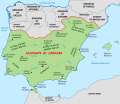

















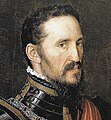






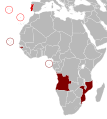



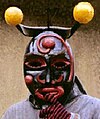






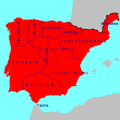
![Image 43Maios celebration in Madeira island [1] (from Culture of Portugal)](http://upload.wikimedia.org/wikipedia/commons/thumb/e/e1/2011-03-05_03-13_Madeira_045_Santana_%285543431418%29.jpg/120px-2011-03-05_03-13_Madeira_045_Santana_%285543431418%29.jpg)










